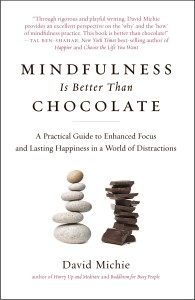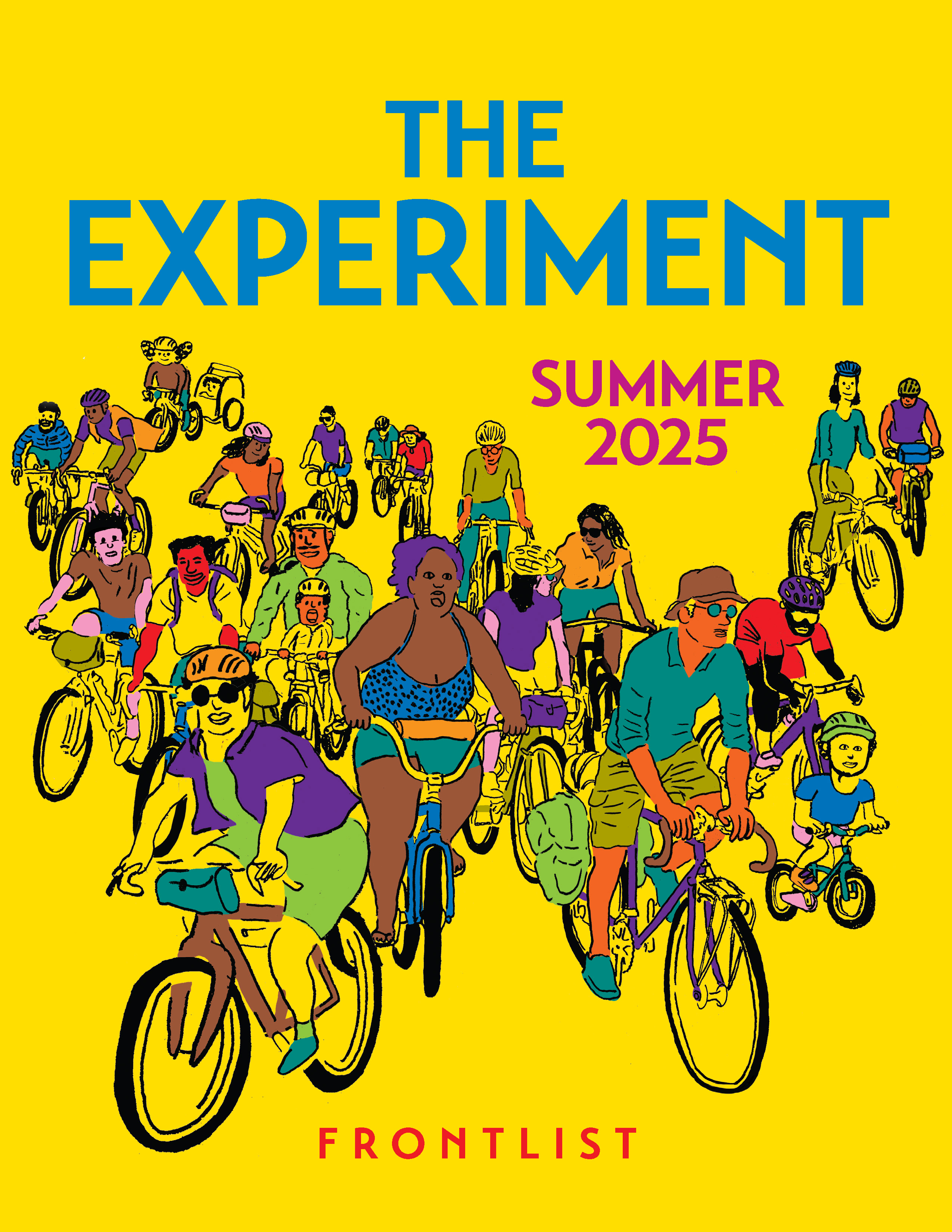Mindfulness has proven itself to have lasting impact and power both in the media and with an ever-expanding network of people looking to adopt the practice. In a segment for 60 Minutes, Anderson Cooper recently participated in a 3-day mindfulness retreat, during which all participants were asked to give up their devices and practice staying aware, staying present in the moment. In a world inundated with mobile devices, screens and almost omnipresent WiFi, existing in the moment is an ongoing challenge—it is far too easy to focus on an upcoming meeting as you brush your teeth, or scroll through emails on the train to work, which can affect our overall well-being and happiness.
All of the distractions in our day-to-day lives have made it increasingly difficult to stop and enjoy the pleasures of every day experiences—even eating chocolate doesn’t get our full attention! Luckily, meditation coach and author David Michie gives us the essential guide to starting a journey to mindfulness with Mindfulness Is Better Than Chocolate: A Practical Guide to Enhanced Focus and Lasting Happiness in a World of Distractions. Drawing on scientific research, Buddhist teachings, and over 20 years of teaching meditation, Michie explores:
- What mindfulness is and how to meditate
- Ten tips for getting into the meditation habit and how to apply mindfulness to your daily life
- How cultivating mindfulness can make you happier by helping to reduce stress, improve performance, manage pain, and boost your immune system
- The personal—and professional!—benefits of meditation and mindfulness
 Mindfulness has long since been a tenet of Buddhism. As Michie says in the book: “An ancient tale tells of a novice who asked an enlightened monk to reveal the secret of happiness. The monk told him, ‘I eat, and I walk and I sleep.’ When the novice replied that he also did those things, the monk replied, ‘When I eat, I eat. When I walk, I walk. When I sleep, I sleep.’ Research has since confirmed what the practice of Buddhism has long taught. In a 2010 study done by Harvard University participants were given questions at different times of day and night asking what they were doing, what they were thinking, and how happy they felt. The research found that, ‘A human mind is a wandering mind, and a wandering mind is an unhappy mind. The ability to think about what is not happening is a cognitive achievement that comes at an emotional cost.'”
Mindfulness has long since been a tenet of Buddhism. As Michie says in the book: “An ancient tale tells of a novice who asked an enlightened monk to reveal the secret of happiness. The monk told him, ‘I eat, and I walk and I sleep.’ When the novice replied that he also did those things, the monk replied, ‘When I eat, I eat. When I walk, I walk. When I sleep, I sleep.’ Research has since confirmed what the practice of Buddhism has long taught. In a 2010 study done by Harvard University participants were given questions at different times of day and night asking what they were doing, what they were thinking, and how happy they felt. The research found that, ‘A human mind is a wandering mind, and a wandering mind is an unhappy mind. The ability to think about what is not happening is a cognitive achievement that comes at an emotional cost.'”
Popular consciousness is also shifting towards a greater focus on mindfulness. Several leading tech companies (somewhat ironically) are offering mindfulness classes for their employees—Facebook, Instagram, and Google included. More and more research is being conducted on the study of mindfulness, and if we’re not mistaken, Anderson Cooper seems to be jumping aboard the train. With his newest release, Michie is bringing the art and practice of mindfulness to the masses so we might all find greater happiness and focus in our daily lives. (Even chocolate will taste better!)
David Michie is the internationally published author of Buddhism for Busy People, Hurry Up and Meditate, and numerous other books, including a successful series of novels featuring the Dalai Lama’s cat. He is a meditation coach to both secular and Buddhist audiences, and a cofounder of Organisational Mindfulness (OM), which delivers mindfulness training to the corporate sector.


